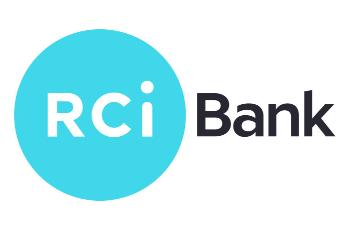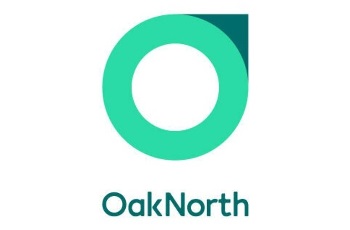This comparison simply includes all savings accounts.
Savings Accounts For Over 60s
£500 bonus to boost your savings if you receive a residential purchase mortgage offer from Leeds Building Society
Chance to win £1,000. Open a new 95-Day Notice Base Rate Tracker account between 12th and 20th February 2026, deposit at least £2,000, and you could be in the draw to win up to £1,000
Compare Savings Accounts For Over 60s
When putting your money into a savings account, you need to consider how long you intend to save for and how much of a return you would like to see. You can then compare the different types of savings accounts available to see which ones best match you saving goals.
If you are a saver over 60 then it is likely you are looking towards the future and searching for the best way to build your savings for retirement.
It may be a good time to review your financial situation to find the best strategy to help your savings grow over the next few years.
One way to stay flexible and access competitive interest rates is to use a combination of the accounts listed below.
By splitting your savings between a selection of current accounts, savings accounts and accounts that require longer term commitment, your savings can make some significant growth.
If you are looking for over 60s savings accounts options see the table above.
Current Accounts
Current accounts generally offer the best rates of interest for smaller sums of money. However, if you go over your account’s interest limit, your remaining balance will likely earn you nothing.
To get the best deal, you may have to shop around and be willing to transfer your current account to a new provider. It’s also worth bearing in mind that some current accounts offer a better interest rate during an introductory period which then drops dramatically once that period is over.
Instant Access Savings Accounts
This type of account allows you to earn interest on your savings while still giving quick access to your money when necessary. Some instant access accounts come with a card that lets you draw money out at cash points, others require you to take money out in branch or transfer it to a current account online or by phone.
Please be aware there may be a limit on how many withdrawals you can make per year without losing some of your interest.
Easy Access Savings Accounts
Essentially the same as instant access accounts, except there may be a few days' delay when you wish to take money out. This is to allow withdrawal and transfer requests to be processed.
Some providers also refer to their instant access accounts as easy access accounts.
Notice Savings Accounts
These are similar to easy access and instant access savings accounts, except you have to give a certain amount of notice before removing funds. Common notice periods range from 40-95 days. The longer the notice period you are willing to give, the higher the interest rate you will usually receive.
Regular Savings Accounts
If you want to put away a little bit of money each month over a longer period, a regular savings account is likely to be the best choice. This kind of account usually requires you to deposit a minimum amount each month and will normally specify a maximum you can put in each month as well. There may also be a limit on how many withdrawals you can make each year.
Regular savings accounts often offer very attractive rates of interest, but it is important to note that, because you are only slowly building up capital, your initial yearly returns may be modest. This means that, while they can be used for short term savings, regular savings accounts are usually a better choice for longer term savings.
Fixed Rate Bonds
Fixed rate bonds tend to offer attractive rates of interest which will be guaranteed for the life of the bond (typically 1-5 years). The caveat here is that you cannot usually take money out of the bond until it matures (i.e. reaches the end of the fixed interest period).
This means most fixed rate bonds are not ideal for short term savings, although some providers do offer fixed rate bonds with terms as short as 3 months which may be worth considering.
If you are looking to lock your savings away until retirement, then fixed rate bonds could be a good option for you. If you are confident that you will not need your savings in the near future, you could put your savings in a long term fixed rate bond, benefit from the higher interest rate and, upon its maturity, use your savings when you are retired.
Cash ISAs
UK tax payers normally have to pay tax on any interest they earn on their savings. However, a cash ISA allows you to earn interest, tax-free, on deposits up to an agreed yearly limit. For the 2017/18 tax year that amount is £20,000.
There are two main types of cash ISAs – instant access and fixed-term. Instant access cash ISAs allow you to withdraw money whenever you need without paying a penalty, making them ideal for short term saving. Fixed-term cash ISAs have similar conditions to fixed rate bonds, so you may be unable to withdraw money until they reach the end of their term or have to pay a penalty in order to do so.
Cash ISAs do not always offer the best interest rates, so you will need to assess whether any tax savings will outweigh the benefits of the higher interest rates provides by other types of accounts.
If you have a significant amount of savings, you may want to use a cash ISA to take advantage of the £20,000 allowance. By using a cash ISA you can reduce the amount of tax you have to pay on the interest you receive on your savings, which ultimately means your savings can grow faster.
Find the savings account for you if you are aged 60 plus
With so many different brands and products on the market, it can be hard to figure out which offer the best deals for you. The comparison table at the top of this page is regularly updated with the most attractive deals on short term savings accounts from across the industry. This makes it easy for you to contrast the features of different accounts for people aged 60 or older and find the right one for your saving needs.
One of the smartest ways to secure your future is by choosing the right savings account tailored specifically for senior citizens in the UK. In this comprehensive guide, we will walk you through the essential factors to consider when selecting a savings account, the different types of accounts available, and the exclusive benefits and offers you can avail yourself of as an over 60.
Understanding the Importance of Savings Accounts for Over 60s
Retirement brings new opportunities and adventures, but it also calls for prudent financial planning. A dedicated savings account for over 60s is more than just a place to park your money; it offers stability, security, and potential growth for your hard-earned savings. Here's why these accounts are vital for securing your financial future:
1. Financial Security and Peace of Mind
Having a dedicated savings account specifically designed for senior citizens provides a sense of financial security and peace of mind. As you transition into retirement, knowing that your funds are in a safe and accessible account ensures that you can meet unexpected expenses or seize exciting opportunities without worry.
2. Potential for Higher Interest Rates
Senior savings accounts often come with attractive interest rates, helping your money grow over time. The power of compounding can work wonders, allowing you to accumulate more substantial savings to support your retirement lifestyle.
3. Tax Efficiency
Certain savings accounts offer tax-efficient benefits, such as Individual Savings Accounts (ISAs), which allow you to save money without paying taxes on the interest earned. Understanding the tax implications of different accounts can help you optimise your savings strategy.
4. Financial Independence
By carefully choosing the right savings account, you can achieve financial independence during your retirement years. Whether it's funding travel plans, pursuing hobbies, or supporting family members, having a robust savings plan empowers you to make the most of your retirement.
5. Emergency Fund and Unforeseen Expenses
As life is unpredictable, having a separate savings account for emergencies can be a lifesaver. A dedicated fund for unexpected medical expenses or home repairs ensures that you can handle such situations without affecting your primary retirement savings.
Factors to Consider When Choosing a Savings Account
Here are the key factors you should carefully evaluate before making a decision:
1. Interest Rates and APY
- Interest rates determine how much your savings will grow over time. Look for accounts that offer competitive interest rates to make the most of your money.
- Consider whether the account offers a fixed or variable interest rate. Fixed rates provide predictability, while variable rates may offer potential upsides but can also fluctuate with market conditions.
2. Account Fees and Charges
- Be aware of any fees associated with the savings account. Common fees include monthly maintenance charges, transaction fees, and penalty charges for early withdrawals.
- Opt for an account with minimal fees or fee waivers for senior customers to ensure your savings remain untouched by unnecessary charges.
3. Accessibility and Convenience
- Assess the account's accessibility options, such as online banking, mobile apps, and ATMs. Easy access to your funds allows for convenient management of your savings.
- Check whether the bank has a wide network of branches and ATMs, making it easier to access your funds wherever you are.
4. Account Flexibility and Terms
- Understand the terms and conditions associated with the savings account. Some accounts may have restrictions on withdrawals or require a minimum balance.
- Look for accounts that offer flexibility in managing your savings, allowing you to make withdrawals when needed without facing excessive penalties.
5. Financial Security and Stability of the Institution
- Prioritise savings accounts offered by reputable and financially stable institutions. Research the institution's track record and customer reviews to ensure your savings are in safe hands.
- Consider whether the bank is covered by the Financial Services Compensation Scheme (FSCS), which protects your savings up to a certain limit in case the institution faces financial difficulties.
Types of Savings Accounts for Over 60s
Each type of account comes with its own set of benefits and features:
1. Regular Savings Accounts
- These are basic savings accounts that offer a secure place to deposit your money while earning interest.
- Ideal for those who want a simple and accessible way to save money without committing to fixed terms or conditions.
2. Fixed-Rate Bonds
- Fixed-rate bonds, also known as fixed-term bonds, offer a higher interest rate for a fixed period, typically ranging from one to five years.
- Suitable for savers who can invest a lump sum for a specified duration and are willing to lock in their money for higher returns.
3. Cash ISAs (Individual Savings Accounts)
- Cash ISAs are tax-efficient savings accounts where the interest earned is entirely tax-free, making them an attractive option for over 60s.
- Available in various forms, including instant-access ISAs, fixed-rate ISAs, and Help to Buy ISAs, each with different terms and benefits.
4. Notice Accounts
- Notice accounts require you to give a specified notice period, usually ranging from 30 to 180 days, before making withdrawals.
- Suitable for individuals who want to earn higher interest rates but can plan ahead for their financial needs.
5. Regular Income Savings Accounts
- Regular income savings accounts are designed to provide a steady stream of income during retirement.
- These accounts often offer a higher interest rate for customers who maintain a regular inflow of funds, such as pension payments.
Here's a table comparing different types of savings accounts in the UK by key features:
|
Type of Account |
Interest Rates |
Accessibility |
Risk |
Special Features |
|
Easy Access Savings |
Lower |
High (Instant Access) |
Low |
Flexibility to deposit and withdraw at any time |
|
Fixed Rate Bonds |
Higher (Fixed) |
Low (Limited Access During Term) |
Low |
Offers a guaranteed return |
|
Notice Savings |
Moderate |
Moderate (Notice Needed) |
Low |
May offer better rates than Easy Access |
|
Regular Savings |
Moderate-High |
Moderate (Limit on Withdrawals) |
Low |
Rewards regular saving |
|
ISAs |
Varies |
High (Instant Access) or Low (Fixed Rate) |
Low |
Tax-free interest up to certain amount |
|
Junior ISAs |
Varies |
Low (Until Child Turns 18) |
Low |
Tax-free savings for children |
|
Help to Buy ISA |
Varies |
Low (For Property Purchase) |
Low |
Government bonus for first time home buyers |
Remember, the specifics of each account can vary between different financial institutions, so it's always important to read the terms and conditions carefully.
Tax Implications for Over 60s Savings Accounts
When it comes to savings accounts for senior citizens in the UK, understanding the tax implications is vital to optimise your returns and savings strategy.
1. Personal Savings Allowance (PSA)
- The Personal Savings Allowance is the amount of tax-free interest you can earn on your savings each tax year.
- As of the current tax year, basic-rate taxpayers can earn up to £1,000 in interest tax-free, while higher-rate taxpayers can earn up to £500.
- Additional-rate taxpayers do not receive a PSA and will be taxed on all interest earned.
2. Tax-Free Savings with ISAs
- Cash ISAs (Individual Savings Accounts) offer tax-free interest on your savings, making them an attractive option for senior citizens.
- The interest earned on Cash ISAs does not count towards your Personal Savings Allowance.
- You can contribute up to the annual ISA allowance (currently £20,000 as of the current tax year) across different types of ISAs.
Example:
Let's consider the tax implications of a savings account for an over 60 individual with an annual interest income of £1,200.
- For basic-rate taxpayers:
- Personal Savings Allowance: £1,000 tax-free interest.
- Taxable interest: £200 (£1,200 - £1,000).
- Tax to be paid: 20% of £200 = £40.
- For higher-rate taxpayers:
- Personal Savings Allowance: £500 tax-free interest.
- Taxable interest: £700 (£1,200 - £500).
- Tax to be paid: 40% of £700 = £280.
- For additional-rate taxpayers:
- No Personal Savings Allowance.
- Taxable interest: £1,200 (the entire interest income).
- Tax to be paid: 45% of £1,200 = £540.
By understanding these tax implications, you can make informed decisions on the types of savings accounts to hold and utilise tax-efficient strategies to maximise your savings.
Special Benefits for Over 60s Savings Accounts
Banks and financial institutions often offer exclusive benefits and rewards tailored to the needs of senior citizens.
- Over 60s Savings Account Offers and Bonuses
- Some banks provide special introductory offers and bonuses for opening a savings account as a senior citizen.
- These offers may include higher interest rates for a limited period, cash bonuses, or rewards points that can be redeemed for various benefits.
2. Exclusive Deals for Senior Citizens
- Certain savings accounts for over 60s come with additional perks, such as discounts on travel, dining, shopping, or entertainment.
- Banks may partner with various businesses to offer exclusive deals and privileges to their senior account holders.
3. Over 60s Loyalty Rewards
- As a token of appreciation for their long-term loyalty, some banks may provide special loyalty rewards to senior customers who have maintained their accounts for an extended period.
- These rewards could range from enhanced interest rates to personalised financial consultations.
Tips for Maximizing Savings for Over 60s
Here are some valuable tips to help you make the most of your savings as a senior citizen:
1. Setting Realistic Savings Goals
- Determine your financial objectives for retirement and set achievable savings goals. Having a clear roadmap will motivate you to stay on track with your savings plan.
2. Creating a Budget
- Establish a comprehensive budget that considers your regular expenses, discretionary spending, and any anticipated one-off costs. Sticking to a budget will ensure you have sufficient funds to meet your needs.
3. Automating Savings
- Set up automatic transfers to your savings account to ensure a portion of your income goes directly towards savings without any effort on your part.
4. Avoiding Risky Investments
- As a retiree, it's essential to prioritise capital preservation. Avoid high-risk investments that could jeopardise your financial stability.
5. Seeking Professional Financial Advice
- Consult with a qualified financial advisor who specialises in retirement planning. Their expertise can help you make informed decisions about your savings and investments.
Frequently Asked Questions (FAQs)
1. What is the best type of savings account for seniors?
- The best type of savings account for seniors depends on individual preferences and financial goals. Cash ISAs offer tax-free interest, while fixed-rate bonds provide higher returns for fixed terms. Consider factors like accessibility, interest rates, and withdrawal options to find the most suitable account for your needs.
2. Are senior savings accounts different from regular savings accounts?
- Yes, senior savings accounts often come with exclusive benefits and perks tailored to the needs of older customers. These benefits may include higher interest rates, special offers, and discounts.
3. How can I find the highest interest rates for over 60s savings accounts?
- Conduct research and compare interest rates offered by different banks and institutions. Online comparison tools and financial websites can help you identify the accounts with the most competitive interest rates.
4. Can I have more than one savings account as a senior citizen?
- Yes, there is no limit to the number of savings accounts you can hold. Diversifying your savings across different accounts can provide added flexibility and security.
5. What happens to my savings if the bank or institution fails?
- If the bank or institution is covered by the Financial Services Compensation Scheme (FSCS), your savings are protected up to a certain limit (currently £85,000 per person per institution). This ensures you will not lose your savings in the event of a bank failure.
6. Are there any age restrictions for opening over 60s savings accounts?
Most banks and financial institutions offer savings accounts specifically designed for senior citizens aged 60 and above. However, age restrictions may vary, and some accounts might have an age eligibility criterion, such as 55 or 65 years old.
7. Can I switch my existing savings account to an over 60s account?
Yes, you can switch your existing savings account to an over 60s account if your chosen bank offers such options. Contact your bank or visit their website to explore the process and any potential benefits or perks associated with the switch.
8. Do senior savings accounts have higher interest rates than regular accounts?
Yes, senior savings accounts often offer higher interest rates compared to regular savings accounts. Banks may offer these enhanced rates as an incentive for older customers to encourage savings during retirement.
9. Are over 60s savings accounts protected by the Financial Services Compensation Scheme (FSCS)?
Yes, savings accounts for over 60s are typically protected by the Financial Services Compensation Scheme (FSCS) in the UK. This means that if the bank or institution fails, your savings up to £85,000 per person per institution are safeguarded by the FSCS.









